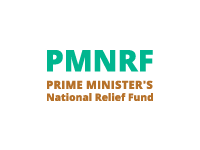ESSENTIAL COMMODITIES REGULATIONS AND ENFORCEMENT
1. Which commodity is to be termed as an essential commodity?
A commodity included in the schedule to the Essential Commodities Act 1955 is an essential commodity under the Act and for the Prevention of Black Marketing and Maintenance of Supplies of Essential Commodities Act 1980.
2. Whether all essential commodities are covered under the stock limits and hoarding?
No. For the purpose of terming a stock as hoarding the State Government has to issue stock limits orders under the EC Act. Any quantity of a commodity covered in the order kept in violation of that order is termed as hoarding. If no stock limits are imposed, there is no question of hoarding in that commodity.
3. Whether there is any inter-state restriction on the movement , distribution and trade of essential commodities?
No. As per the order of Union Government dated 15.02.2002, all kinds of restrictions on the trade of essential commodities have been removed under the powers provided in the EC Act. If any other Act provides any restriction, the issue is to be dealt with according to the provisions of the respective Act.
4. Whether Central Government decides stock limits for essential commodities?
No. Whenever there are pressing reasons to arrest unfair price rise of any essential commodity, the Union Government empowers State Governments and Union Territories, by way of notifying orders under the EC Act, to decide stock limits and notify after approval of the Union Government.
5. Whether States can constitute Special Courts for the cases to be tried under the EC Act and PBMMSEC Act?
Yes. The States have inherent powers to constitute Special Courts for any kind of offences in consultation with the concerned High Court. In addition to it, any of the existing courts may be designated as special court for essential commodities. However, if any States needs any such court and wants consultation of the Central Government, a proposal may be sent to the Central Government for approval.
6. Whether artificial shortage of an essential commodity is to be prevented by the Central Government?
Yes. Law and Order is the State subject. In addition to it, if a State Government wants to issue any statutory order the EC Act, it may submit a proposal for approval of the Union Government under the powers delegated to them on 09th June 1978.
7. Which authorities should be approached to complain against hoarding and black marketing of essential commodities?
Under the EC Act and PBMMSEC Act, the District Magistrate, the Commissioner of Police, Secretary of the concerned department in the State/UT or any other authority notified by the State, District Police Superintendent may be sent/submitted such complaints. Director General of Police, Chief Secretary of the State, may also be sent/submitted such complaints.
8. Whether Maximum Retail Price is applicable to the essential commodities?
Yes. For non-perishable commodities MRP is decided. For perishable commodities, it is for the State/UT to regulate prices to ensure minimum gap between selling price of producer/manufacturer and retail price.
9. Whether Essential Commodities (Special Provisions) Act 1981 is still effective?
No. The Special Provisions Act was effective initially for 5 years only. It was extended twice extending its effect up to 15 years. Thus since 26.09.2996, the Act is not in effect, though it has not been repealed by a Repealment Act, it is to be treated as repealed by a Central Act, under Section 6 of the General Clauses Act, 1887.
10. From where to get report of implementation of these Acts?
The State wise report is available on the website of department of consumer affairs of Government of India under ECR&E and Act and Rules. The information pertaining to a particular State may be secured from the Secretary/Principal Secretary of the concerned department. The information pertaining to a District may be secured from the District Civil Supplies Officer /District Magistrate/District Commissioner, as the case may be.









 उपभोक्ता मामले विभाग
उपभोक्ता मामले विभाग










